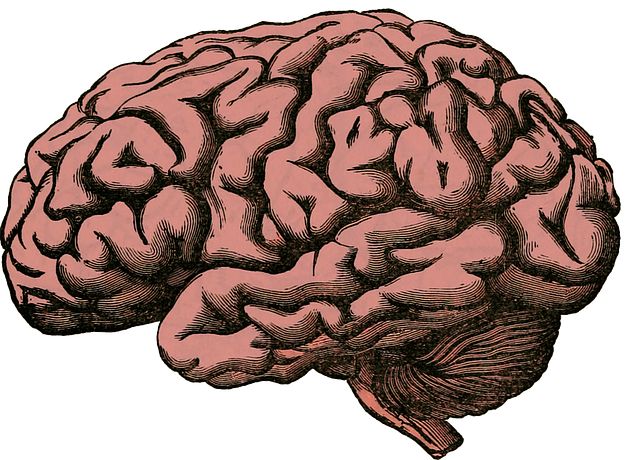Denver's Crisis Intervention Team (CIT) training programs equip individuals with essential skills for mental health crisis response, including assessment, de-escalation, and evidence-based stress reduction methods like cognitive behavioral therapy. Integrating Denver Post-Traumatic Stress Disorder Therapy into the curriculum empowers first responders and mental health professionals to manage their own PTSD and support others. This holistic approach creates a network of trained professionals who can foster safe, healing environments for communities affected by trauma. CIT training in diverse community settings offers immediate crisis support, reducing strain on emergency services, while addressing cultural competency challenges through mood and stress management.
“Crisis intervention team (CIT) training programs are transforming community responses to mental health crises. This article explores the core components of these life-saving initiatives, using Denver’s innovative approach to post-traumatic stress disorder (PTSD) therapy as a case study. We delve into the benefits and challenges of implementing CIT training in diverse community settings, emphasizing its potential to enhance public safety and support individuals struggling with PTSD. By understanding these programs’ impact, communities can better navigate crises and provide effective Denver PTSD therapy.”
- Understanding Crisis Intervention Team Training Programs
- Denver's Approach to Post-Traumatic Stress Disorder Therapy in CIT Programs
- Benefits and Challenges of Implementing CIT Training in Community Settings
Understanding Crisis Intervention Team Training Programs

Crisis Intervention Team (CIT) Training Programs are designed to equip individuals with the skills and knowledge necessary to respond effectively during mental health crises. These programs, often offered in communities across the country, including Denver, focus on enhancing resilience building and anxiety relief strategies for both the crisis interveners and those they support. Participants learn how to assess situations, de-escalate conflicts, and implement evidence-based stress reduction methods, such as cognitive behavioral therapy techniques.
The training goes beyond simple problem-solving; it fosters an understanding of post-traumatic stress disorder (PTSD) and other mental health conditions, enabling interveners to provide tailored support. By mastering these skills, CIT team members become vital resources in their communities, helping to reduce the impact of crises and promote better mental health outcomes for individuals facing challenges like anxiety and PTSD, as highlighted by the Denver Post.
Denver's Approach to Post-Traumatic Stress Disorder Therapy in CIT Programs

Denver’s approach to post-traumatic stress disorder (PTSD) therapy within crisis intervention team (CIT) programs is a model that has garnered significant attention in the mental health community. This innovative program recognizes the unique challenges faced by first responders and individuals who experience trauma, integrating specialized PTSD support services into the core curriculum of CIT training. By focusing on Denver Post-Traumatic Stress Disorder Therapy, the city’s initiative aims to equip participants with the necessary tools to not only manage their own potential PTSD but also provide effective crisis intervention for others struggling with trauma-related issues.
The program emphasizes a comprehensive approach, combining evidence-based therapy techniques with practical crisis intervention guidance. Trainees learn risk assessment strategies for mental health professionals, enabling them to identify and support individuals at risk of traumatic stress. This holistic training ensures that CIT team members are well-prepared to offer compassionate trauma support services, fostering safe and healing environments for both the affected individuals and their communities.
Benefits and Challenges of Implementing CIT Training in Community Settings

Implementing Crisis Intervention Team (CIT) training in community settings offers a multitude of benefits for both individuals and the broader society. By equipping community members with the skills to recognize, respond to, and de-escalate crises, CIT programs can significantly enhance the accessibility and effectiveness of mental health support. This is particularly crucial in areas like Denver, where addressing post-traumatic stress disorder (PTSD) therapy and other mental health concerns are pressing issues. Trained CIT team members can provide immediate assistance during a crisis, potentially reducing the need for emergency room visits or more intensive hospital care.
However, challenges exist when introducing CIT training in community settings. One significant hurdle is ensuring that these programs reach diverse populations, including those from different cultural backgrounds and socioeconomic statuses. Healthcare provider cultural competency training plays a vital role in overcoming this challenge by promoting understanding and sensitivity to various cultural contexts. Additionally, addressing mood management and stress management skills within CIT training ensures that participants are equipped to handle not just acute crises but also the ongoing stressors prevalent in many communities. Despite these challenges, the benefits of CIT training in community settings far outweigh the obstacles, making it a valuable investment for fostering mental health resilience and overall well-being.
Crisis Intervention Team (CIT) training programs, as exemplified by Denver’s innovative approach to Post-Traumatic Stress Disorder (PTSD) therapy, offer a transformative model for community support. By equipping first responders and civilians with the skills to manage crises effectively, these programs enhance public safety and well-being. Despite challenges in implementation, the benefits of CIT training are undeniable, fostering more resilient communities capable of navigating trauma with empathy and efficiency. This evidence-based strategy warrants broader adoption to ensure a safer and healthier society.











